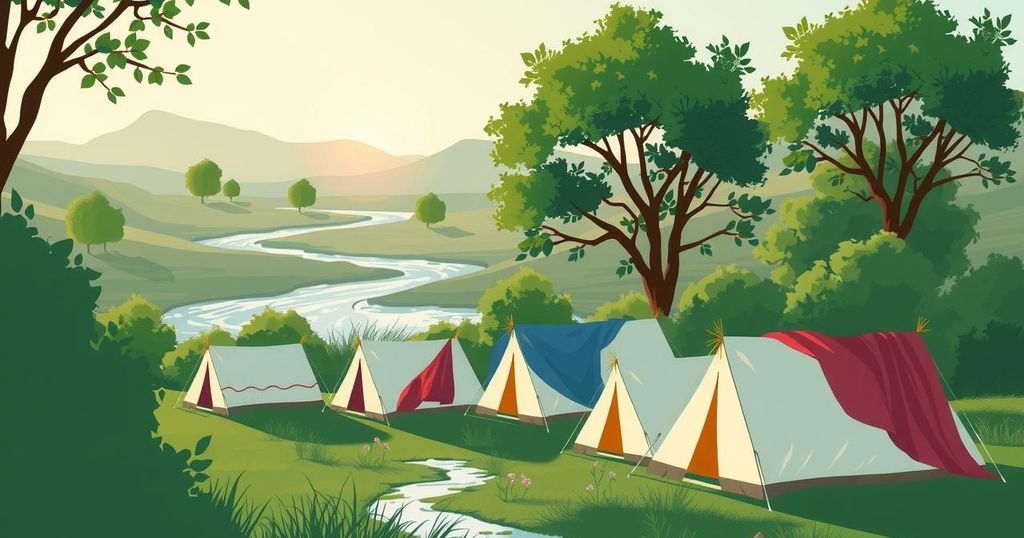Daily Life of Refugees at Gorom Settlement in Juba, South Sudan
The Gorom refugee settlement in South Sudan houses approximately 16,000 refugees, primarily from Sudan, with growing numbers. Daily life involves essential activities such as laundry, fetching water, and community interactions, as well as preparations for cultural events like Ramadan. Despite challenging conditions, refugees exhibit resilience and maintain social ties.
At the Gorom refugee settlement located on the outskirts of Juba, South Sudan, daily life involves various activities essential for survival. Approximately 16,000 refugees currently reside in this settlement, primarily originating from Sudan, along with some from Ethiopia and Burundi. The continuous rise in the number of Sudanese refugees necessitates constant adaptation to their living conditions.
Refugees engage in fundamental tasks such as laundry and fetching water, reflecting daily routines within the settlement that are crucial for sustaining their lives. For instance, a Sudanese refugee was observed carrying a water bucket, while others were busy doing laundry, managing their household chores under challenging circumstances.
Community interaction is also vital, illustrated by refugees gathering for social and practical needs. Some individuals were seen waiting outside the United Nations High Commissioner for Refugees (UNHCR) office for registration, while others were engaged in friendly activities, such as one refugee combing another’s hair, highlighting social bonds despite hardship.
Additionally, education and culture play a role in the lives of these refugees. Some individuals were noted reading, enhancing their knowledge and coping with challenges. Preparations for significant cultural events, such as Ramadan, were also underway, with refugees cooking and sharing meals, illustrating the integration of cultural practices into their daily life amidst adversity.
The Gorom refugee settlement serves as a critical asylum for thousands fleeing conflict in their home countries. As the number of refugees continues to rise, daily life is characterized by resilience and adaptability as individuals engage in routine tasks, community support, and cultural practices. The need for assistance and resources remains pressing as they strive for stability in an uncertain environment.
Original Source: english.news.cn




Post Comment